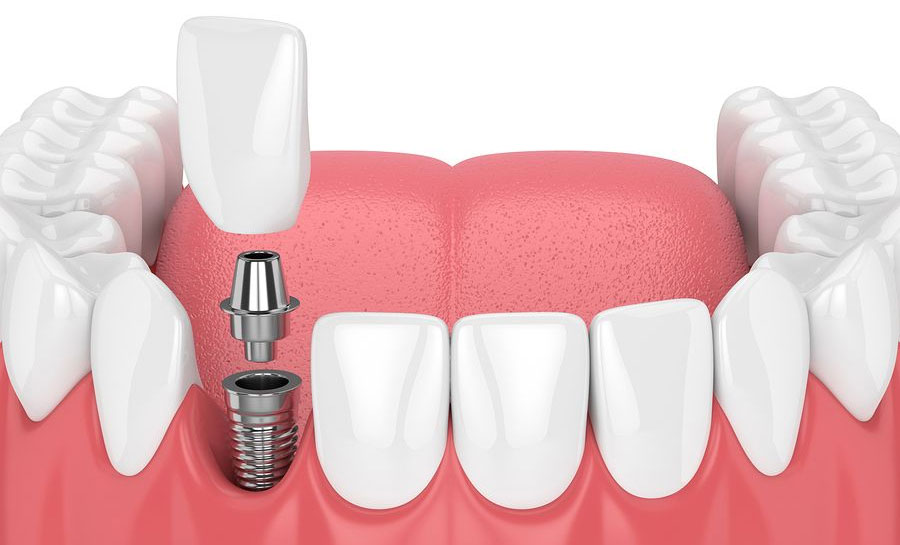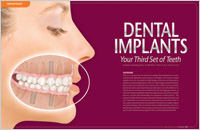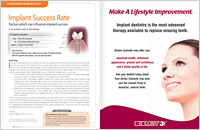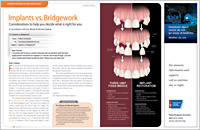Dental implants offer patients the most technologically advanced tooth replacement available in modern dentistry. Because they outperform traditional appliances in so many ways, an increasing number of patients are turning to this treatment option as a solution for tooth loss.
If you are interested in exploring the many benefits of dental implants and determining whether they will be a good fit for you, we encourage you to schedule a consultation at our office. This is the first step on the path to restoring a complete and functional smile.
How Dental Implants Work
After our oral surgeon places a dental implant in a patient’s jaw, the implant eventually becomes a fixture in the jaw. This is possible because dental implants are small cylinders made of titanium, which is biocompatible. The bone tissue in the jaw can fuse with the titanium, rendering the dental implant a permanent part of the jaw’s structure.
Because dental implants become fixed in the jaw, they can function similarly to the root of a biological tooth, which secures the tooth’s crown and stabilizes the surrounding jawbone structure. Dental implants can do the same things, and as you will see below, this offers multiple benefits to patients.
When Dental Implants Can Be Used
Dental implants are versatile and can be used to restore smiles in virtually any tooth loss scenario. Dental implants can support:
- Crowns
- Bridges
- Dentures
The patient needs to have sufficient bone to support osseointegration, so Dr. Ibanez will thoroughly evaluate your case to see if bone loss might be a barrier to dental implant placement.






